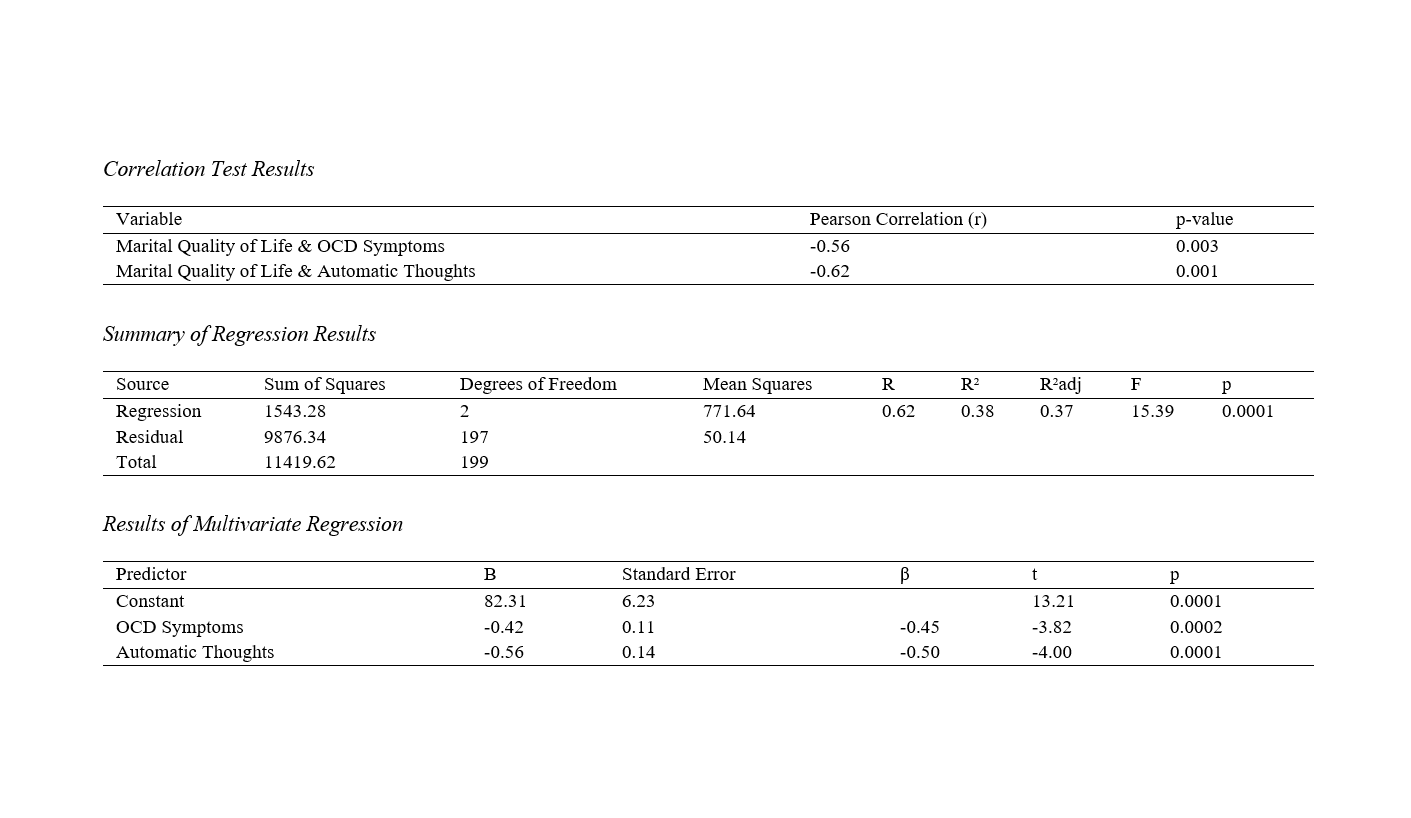The Impact of Women's OCD Symptoms and Automatic Thoughts on Marital Quality of Life
Keywords:
Marital quality of life, OCD symptoms, automatic thoughts, cognitive distortions, women’s mental healthAbstract
Objective: The primary objective of this study was to examine the impact of women’s obsessive-compulsive disorder (OCD) symptoms and automatic thoughts on marital quality of life.
Methods and Materials: This cross-sectional study included 200 married women residing in District 7 of Tehran. The sample size was determined based on the Morgan and Krejcie table. Data were collected using three standardized tools: the Yale-Brown Obsessive-Compulsive Scale (Y-BOCS) for OCD symptoms, the Automatic Thoughts Questionnaire (ATQ), and the Quality of Marriage Index (QMI) for marital quality of life. Pearson correlation analysis and multiple linear regression were performed using SPSS-27 to assess the relationships between the independent variables (OCD symptoms and automatic thoughts) and the dependent variable (marital quality of life). Statistical significance was set at p < 0.05.
Findings: The results revealed a significant negative correlation between OCD symptoms and marital quality of life (r = -0.56, p = 0.003) and between automatic thoughts and marital quality of life (r = -0.62, p = 0.001). Multivariate regression analysis showed that both OCD symptoms (B = -0.42, p = 0.0002) and automatic thoughts (B = -0.56, p = 0.0001) were significant predictors of marital quality of life, accounting for 38% of the variance (R² = 0.38).
Conclusion: The findings indicate that OCD symptoms and negative automatic thoughts have a significant detrimental effect on marital quality of life. Automatic thoughts demonstrated a stronger negative influence than OCD symptoms. These results underscore the importance of addressing cognitive and psychological factors in therapeutic interventions aimed at improving marital satisfaction among women.
Downloads

Downloads
Additional Files
Published
Issue
Section
License
Copyright (c) 2024 Mohammad Elahifar (Corresponding Author)

This work is licensed under a Creative Commons Attribution-NonCommercial 4.0 International License.
















